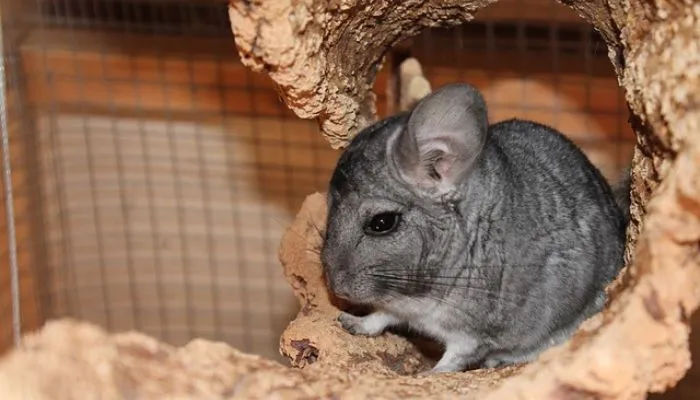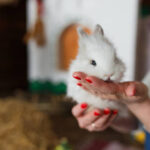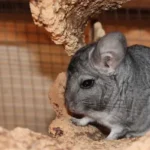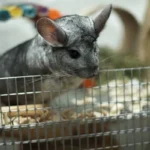Chinchillas, known for their delicate fur and charming appearance, have found a spot in the hearts of numerous family pets. Given the growing popularity of these tiny rodents, potential owners must weigh the benefits and drawbacks of living with chinchillas. This article guarantees a peaceful and fulfilling relationship between the owner and their pet in addition to aiding in decision-making.
Pros and Cons of Chinchillas as Pets:
Chinchilla as a Pet Pros:
1- Low Allergenicity:
Low allergenicity is one of the amazing advantages of owning a chinchilla as a pet. Chinchillas are an excellent choice for allergy patients because they don’t generate as much dander as some of their other fuzzy companions. Because there isn’t a risk of a severe allergic reaction, more people can own pets and experience the joy that comes with having a furry friend.
2- Long Lifespan:
Compared to many other small pets, chinchillas have a longer lifespan. These adorable animals can live up to 15 years with the right care, offering the chance for a deep and lasting bond between owner and pet. The prolonged dedication needed to care for a chinchilla provides a special journey of friendship in which the animal and its owner develop together over time.
3- Low Maintenance:
Chinchillas are a great option for anybody looking for a pet with comparatively low upkeep needs. Their nutritional requirements are simple, mostly consisting of high-fiber hay, and because of their self-cleaning nature, grooming is a snap. Furthermore, chinchillas are renowned for being clean, which lessens the work needed to have a fresh and odor-free living space.
Chinchilla vs Guinea Pig: Choosing the Perfect Pet
4- Social and Intelligent:
Not only are chinchillas incredibly cute, but they’re also intelligent, gregarious animals. They can develop close relationships with humans and thrive on people. They are trainable because of their cognitive talents, which adds another level of fun for owners who like to train their pets tricks or provide them cerebral stimulation. The happiness of seeing a chinchilla play and the creation of a special bond between pet and owner give priceless value to the connection.
5- Nocturnal Behavior:
Because they are nocturnal animals, chipmilleras are most active at night. This can be advantageous for people with hectic daytime schedules, but it may be a disadvantage for prospective owners who prefer diurnal dogs. Because chinchillas are nocturnal animals, they can play and engage with people in the evenings, which is a special chance for bonding after a long day at work.
Chinchilla as Pets Cons:
1- Fragile Health:
Chinchillas are defenseless to medical issues even though they are solid animals. Since these creatures might be more vulnerable to specific diseases, proprietors should be keeping watch for such issues. Successive veterinary assessments are important to ensure their well-being and prosperity, as is giving speedy consideration to any side effects of illness. In light of their fragile well-being, pet considerations should be proactive and cautious.
2- Specific Environmental Needs:
For the sake of their well-being, chinchillas have certain environmental needs that must be satisfied. It is crucial to maintain the proper temperature and humidity levels, and their cages need to be configured to resemble their natural habitat. Achieving these requirements can be difficult, requiring owners to put in time and effort to give their chinchilla the best possible living environment. Comprehending and meeting these requirements is essential for the pet’s general well-being.
3- Limited Interaction Window:
While chinchillas are social animals, they can be sensitive to handling. Building trust takes time, and owners need to be patient and gentle when interacting with their pets. Understanding and respecting the chinchilla’s need for a limited interaction window is crucial to avoid causing stress or anxiety. Taking the time to bond gradually and creating a calm and comfortable environment are key aspects of ensuring a positive relationship with a chinchilla.
4- Specialized Diet:
Chinchillas have specific dietary needs, and owners must be aware of these to ensure proper nutrition. Their diet primarily consists of high-fiber hay, and providing the right balance of nutrients is essential for their health. Owners should be prepared to invest time in understanding their dietary requirements and ensuring access to suitable food. The nutritional aspect is a crucial element of chinchilla care that contributes significantly to their overall well-being.
5- Cost of Ownership:
While chinchillas may have a lower day-to-day cost of ownership compared to some other pets, the initial setup costs can be significant. Acquiring a suitable cage, bedding, toys, and other accessories can require a notable upfront investment. Additionally, ongoing expenses for high-quality food, bedding, and veterinary care contribute to the overall cost of chinchilla ownership. Prospective owners should consider these financial aspects and ensure they are prepared for the financial commitment that comes with providing optimal care for a chinchilla.
Conclusion of Chinchillas as Pets Pros and Cons:
In this exploration of the pros and cons of having chinchillas as pets, it becomes evident that these charming rodents offer unique advantages along with specific challenges. Prospective owners must carefully weigh these factors to make an informed decision. Responsible pet ownership, including regular veterinary care and meeting the specialized needs of chinchillas, is key to ensuring a happy and fulfilling life for these delightful companions.










